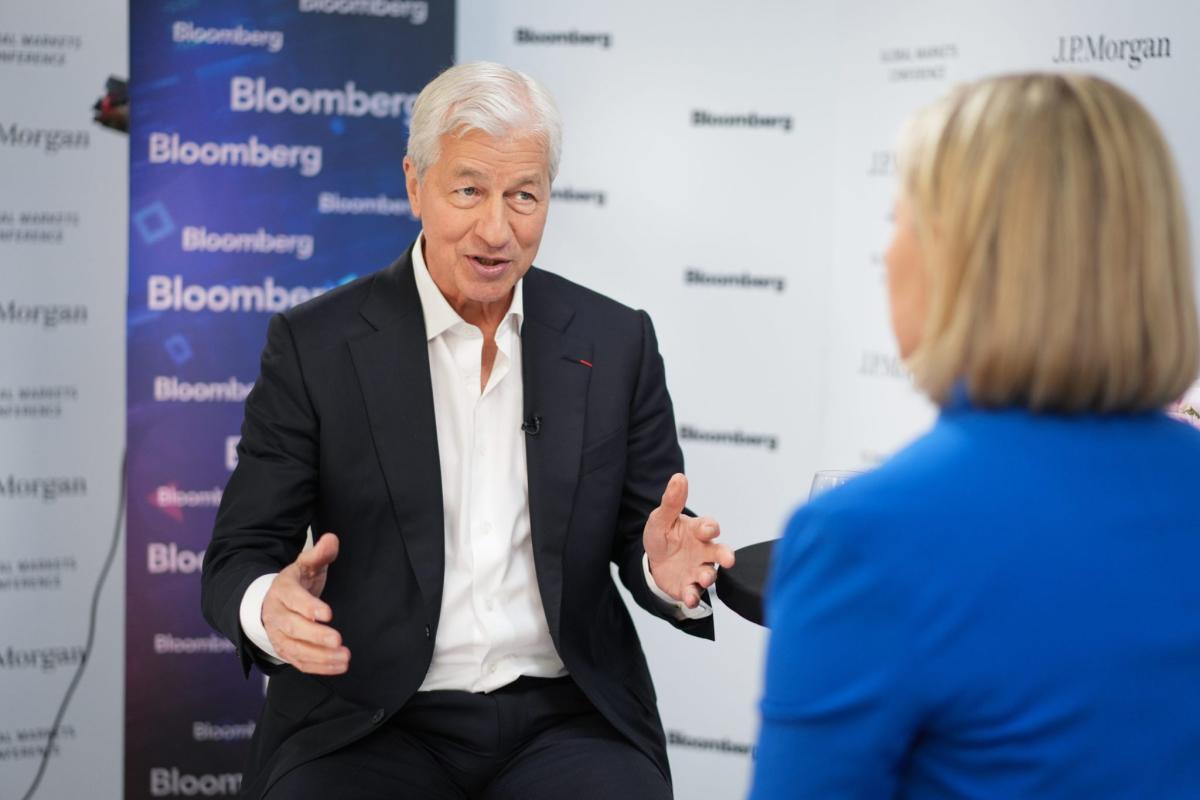


The rise of private credit over the past decade has been nothing short of monumental. But JPMorgan Chase CEO Jamie Dimon warned this week that parts of the burgeoning sector have some of the same problems that the mortgage market had prior to the Great Recession of 2008, including questionable credit ratings from ratings agencies.
“I’ve seen a couple of these deals that were rated by a ratings agency, and I have to confess it shocked me what they got rated,” he said at a conference Wednesday, per Bloomberg. “It reminds me a little bit of mortgages.”
Dimon didn’t reference the Great Recession directly in his comments, but he did describe the key issue with subprime mortgages that took down the housing market in 2008, sparking the painful global financial crisis of that era.
Specifically, Dimon said banks were blamed for the faulty way that mortgages were rated, hinting that private credit companies could experience a similar fate if there are problems with loans in their sector. “The rating agency was rating them, they said they were double A or triple A, but they effectively weren’t, because they didn’t do the analysis about the subprime component,” he said.
Right after these comments, Dimon said when it comes to private credit, there’s been a similar dynamic at play today. “I don’t expect it to be systemic, but I do expect there to be problems,” he added.
Bad actors in private credit
The private credit market, where non-bank financial institutions like insurance companies and hedge funds lend to corporate borrowers, has had a renaissance in recent years with banks reducing their lending due to regulatory scrutiny, inflation, and higher interest rates. Assets and committed capital in the sector surged from around $500 billion a decade ago to $2.1 trillion last year, according to IMF data. And private credit assets under management are expected to hit $2.8 trillion by 2028, according to Preqin’s 2024 Global Report.
With this record growth in mind, Dimon wasn’t completely pessimistic when discussing the private credit space. The CEO said there are distinct advantages to private lending, including the ability for private lenders to offer loan modifications and reasonable covenants that enable businesses to access cash quickly. The private credit space is also filled with mostly long-term investors, Dimon noted, which means they “aren’t going to be asking businesses to do stupid short-term things” in order to meet specific return obligations.
“In some way, there’s a lot of good stuff,” he said, arguing there are many “brilliant” private lenders. “I mean, I know them all. We bank a lot of them. They’re clients of ours.”
But Dimon went on to say that private lenders are “not all good”—and that’s the issue. “The problem in financial markets is often caused by the not good ones, the people that make the mistakes,” he explained.
The JPMorgan CEO lamented the lack of stress testing and transparency around “the marks,” another word for valuations, in private credit. He also questioned whether some private lenders are doing adequate research before lending, and noted that some private loans lack credit ratings altogether.
Furthermore, Dimon warned many investors aren’t appreciating just how much rising interest rates have devalued private loan portfolios. “Do people really fully understand what I said about interest rates affecting what these things are worth today? Do they?” he asked.
Retail investors won’t take private credit losses sitting down
After outlining the key risks in the private credit market, Dimon warned retail investors’ entrance into the sector could also cause problems. Because money that is invested into private credit is often locked up for years, the CEO fears retail investors will react poorly if they experience losses.
Dimon was left wondering what happens “if a little old lady finds out that she can’t get her money back.” Even with proper disclosures from the private credit industry, he argued, retail investors won’t take losses, or the inability to withdraw their funds, very well.
“Retail clients tend to circle the block and call their senators and congressmen,” he said. “There could be hell to pay.”
“When the sh**t hits the fan—and it will one day, we don’t know when—there will be a lot of stranded borrowers,” he added.
This story was originally featured on Fortune.com
EMEA Tribune is not involved in this news article, it is taken from our partners and or from the News Agencies. Copyright and Credit go to the News Agencies, email news@emeatribune.com Follow our WhatsApp verified Channel








